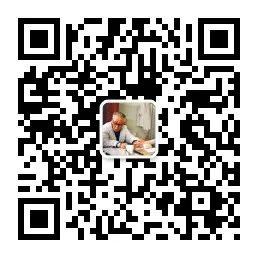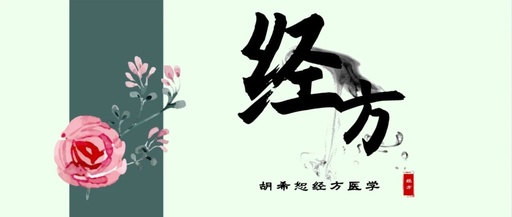
| Abstract: Fuzi (Aconitum carmichaelii), a powerful tonic for the Yang, is known for its strong heat and toxicity, thus requiring careful use by practitioners throughout history. In recent years, male urological disorders have garnered increasing attention due to their complex symptoms and diverse pathogenesis, which can involve cold, heat, deficiency, and excess, presenting challenges for clinical treatment. The classical medical system of Hu Xishu utilizes the Six Meridians and Eight Principles as its theoretical framework, diagnosing and treating based on the body’s symptomatic responses. It posits that male urological disorders often manifest as combinations of two or three meridians, primarily reflecting a decline in bodily functions. Therefore, in clinical treatment, it is essential to emphasize the role of Fuzi in invigorating bodily functions. This article summarizes the application of Fuzi in male urological disorders from the perspective of classical medicine for reference by practitioners.
Hu Xishu’s Classical Medicine
1. Premature EjaculationPremature ejaculation is a common male sexual dysfunction, with a clinical prevalence of about 30%. Traditional Chinese Medicine (TCM) does not have a specific term for “premature ejaculation,” often referring to it as “loss of essence,” “excessive essence,” or “leakage of essence.” Zhang Zhongjing in the “Synopsis of Prescriptions of the Golden Chamber” states: “For men with loss of essence, and women with dreams of intercourse, the prescription is Gui Zhi (Cinnamon Twig) Decoction with Long Gu (Dragon Bone) and Mu Li (Oyster Shell).” Later practitioners annotated this formula, stating: “For those with weakness, floating heat, and sweating, remove Gui Zhi and add Bai Wei (White Peony) and Fuzi, each three fen, hence the name Er Jia Long Gu Decoction.” Many practitioners today use Er Jia Long Gu Mu Li Decoction to treat the deficiency syndrome of excessive sexual desire, with Professor Feng Shilun effectively using it to treat refractory premature ejaculation. Professor Feng believes that sweat, blood, and essence all belong to body fluids, and premature ejaculation occurs due to deficiency heat disturbing the heart spirit, leading to the uncontrolled leakage of body fluids; thus, treatment should focus on stabilizing the exterior and consolidating body fluids. Er Jia Long Gu Decoction can clear internal deficiency heat, strengthen the exterior, and stabilize the exterior, preventing heat from forcing body fluids outward, allowing fluids and blood to naturally recover. In this formula, Fuzi warms Yang, strengthens, and invigorates the body’s declining functions, working alongside Sheng Jiang (Fresh Ginger) and Gui Zhi to resolve the exterior of Shaoyin, and eliminate cold dampness from the lower jiao. The combination of these herbs restores body fluids while consolidating them, clearing evil heat, calming palpitations, and preventing essence from leaking. This aligns with Zhang Zhongjing’s principle of “preserving body fluids and protecting Yang Qi.” 2. InfertilityInfertility, historically referred to as “childlessness” or “no offspring,” has an incidence rate of about 10% to 15%. However, due to the high toxicity of Fuzi, both ancient and modern practitioners tend to use it cautiously in treating infertility, sometimes even avoiding it altogether. Notably, Ming Dynasty physician Miao Xiyong proposed that Fuzi should be avoided in seventy-two conditions, such as elderly impotence, kidney deficiency with residual urine, etc. He believed these conditions were related to Yin deficiency and various heat syndromes, unrelated to Yang weakness, and that misuse could lead to severe consequences, even death. However, Chen Shiduo argued that Fuzi warms the spleen and stomach and opens the lower back and kidneys, serving as a rejuvenating elixir. Its use must be based on the differentiation of cold, heat, Yin, and Yang, particularly emphasizing that among the seventy-two conditions mentioned by Miao Xiyong, thirty-one should definitely use Fuzi to supplement Yin and Yang. Medical texts indicate that Fuzi, as a pure Yang and highly warming substance, can ascend and descend, circulating through the twelve meridians, thus having a broad supportive effect on Yang. For instance, in the “Complete Book of Jingyue,” the Right Return Pill is based on the principle of “nourishing the source of fire to cultivate original Yang,” combining Fuzi and Rou Gui (Cinnamon) with herbs like Shu Di Huang (Rehmannia) and Shan Yao (Chinese Yam) to greatly replenish Yin essence, supplementing Yang without harming Yin, achieving the effect of warming Yang, filling essence, and dispelling cold. Tian Xiong San, derived from Zhang Zhongjing’s “Synopsis of Prescriptions of the Golden Chamber,” includes Tian Xiong (a type of Aconitum) and Fuzi, which are considered one entity, with Chen Shiduo stating: “The larger is Tian Xiong, the smaller is Chuan Wu (another type of Aconitum),” as it possesses the greatest warming and tonifying power. Although the text provides a formula without evidence, a careful analysis reveals that the combination of Gui Zhi, Tian Xiong warms and tonifies the Yang deficiency of the lower jiao, Long Gu stabilizes and consolidates, Bai Zhu (Atractylodes) strengthens the spleen and benefits Qi, aiding in the generation of Qi and blood, thus supplementing the postnatal to cultivate the prenatal. Bai Zhu opens the source, Long Gu regulates flow, Tian Xiong consolidates the foundation, and the three methods combined achieve the effect of tonifying Yang and consolidating essence. 3. ProstatitisProstatitis corresponds to benign prostatic hyperplasia in Western medicine, primarily characterized by frequent urination, increased nocturia, and difficulty urinating. Feng Zhaozhang believes that prostatitis is often seen as a “Yang deficiency syndrome,” where Yang Qi is insufficient to transform water and fluids, thus treatment should focus on greatly tonifying the original Qi, allowing for self-regulation without the need for diuretics. Fuzi is effective in tonifying the Yang deficiency of the lower jiao, warming Yang, transforming Qi, and promoting bladder Qi transformation, restoring the flow of water pathways. Zhang Zhongjing frequently used Fuzi in his prescriptions for treating urinary difficulties, such as in the “Treatise on Cold Damage,” where he states: “In Shaoyin disease… abdominal pain, urinary difficulty… this is due to water Qi… Zhen Wu Decoction is the prescription.” This syndrome is caused by external pathogens and internal fluids, using prepared Fuzi as the monarch herb to invigorate the declining functions, combined with Sheng Jiang to strengthen and resolve the exterior, and paired with Fu Ling (Poria) and Bai Zhu to warm and transform internal fluids, while Bai Shao (White Peony) alleviates spasms and treats abdominal pain. Additionally, the “Synopsis of Prescriptions of the Golden Chamber” states: “For urinary difficulty, there is water Qi… Guo Lou Qu Mai Pill is the prescription,” which originates from Yang weakness and cold in the lower jiao, where cold water accumulates, but deficiency heat resides above. Therefore, Fuzi is used to benefit Yang Qi, Fu Ling and Qu Mai promote water Qi, while Shan Yao and Guo Lou root eliminate heat and generate body fluids, achieving the effect of upper steaming body fluids and lower promoting water Qi. Professor Feng Shilun’s Clinical Cases1. Prostatitis A 70-year-old male patient was first diagnosed on December 9, 2020. Chief complaint: urinary weakness with a thin stream for over six months. The patient experienced urinary weakness, dry mouth, thin stream, dribbling, nocturia 1-2 times, significant cold intolerance, normal appetite, poor sleep, loose stools, soft and weak abdominal wall, pale red tongue, thin white coating, and a deep, thin pulse. B ultrasound indicated benign prostatic hyperplasia with calcification; residual urine 220mL. Western diagnosis: benign prostatic hyperplasia. TCM diagnosis: prostatitis; Six Meridians differentiation: combined Shaoyin and Yangming. The differentiated formula was modified from Si Ni San, prescribed: Zhi Gan Cao (Honey-fried Licorice) 12g, Gan Jiang (Dried Ginger) 15g, Fuzi 25g, Gui Zhi 10g, Sheng Di Huang 24g, Dang Gui (Angelica) 20g, Jin Ying Zi (Cherokee Rose) 20g, Huang Qi (Astragalus) 24g, Fu Ling 15g, Ze Xie (Alisma) 15g, Chuan Xiong (Szechuan Lovage) 20g, Bai Shao 24g, Da Zao (Jujube) 15g, Huang Qin (Scutellaria) 12g, Chen Pi (Tangerine Peel) 20g. 7 doses, taken once daily, decocted and divided into morning and evening doses. Second diagnosis (December 16, 2020): The patient reported improvement in urinary retention after taking the medicine, nocturia 1 time, still feeling urinary weakness, cold intolerance, dry mouth, and significant fatigue, pale red tongue, thin white coating, deep thin pulse, soft and weak abdominal wall, B ultrasound indicated residual urine 75mL. The previous prescription was augmented with Bie Jia (Soft-shelled Turtle Shell) 15g, continuing with 14 doses, decoction method as before. The patient continued with the second diagnosis formula, adjusting as needed, with stable improvement in condition and quality of life, significant improvement in urinary weakness and retention, abdominal warmth, improved abdominal wall muscle tone, nocturia reduced to 0-1 times, and on May 10, 2021, B ultrasound indicated residual urine 25mL. Note: The patient, being elderly, exhibited cold intolerance, loose stools, frequent nocturia, urinary weakness, dry mouth, cold intolerance, deep thin pulse, and white coating, indicating a combined Shaoyin and Yangming syndrome. Treatment was based on Si Ni San combined with Si Wu Decoction, adding Gui Zhi, Jin Qi, and Ling Ze Qing Chen Zao Decoction, using Fuzi, Gan Jiang, Gui Zhi, Huang Qi, Bai Shao, and Zhi Gan Cao to resolve the Shaoyin exterior. Accompanied by Ze Xie, Chen Pi, and Fu Ling to warm Yang and promote water, combined with Sheng Di Huang, Dang Gui, Chuan Xiong, Bie Jia, Huang Qin to nourish fluids, invigorate blood, and clear internal deficiency heat, while Jin Ying Zi consolidates fluids and stops leakage. The combined effect of these herbs resolves the Shaoyin exterior, warms internally, transforms fluids, and clears heat, thus treating elderly patients with declining bodily functions and urinary weakness. 2. Premature Ejaculation A 27-year-old male patient was first diagnosed on October 12, 2021. Chief complaint: rapid ejaculation for one year. The patient experienced rapid ejaculation (<2 min) during his first sexual encounter a year ago, with a tendency to be overweight, cold intolerance in limbs, dry mouth, easy sweating, poor appetite, frequent nocturia 2 times, reduced morning erections, normal bowel movements. The tongue coating was white and greasy, with a deep thin pulse. Western diagnosis: premature ejaculation. TCM diagnosis: premature ejaculation; Six Meridians differentiation: combined Shaoyin and Yangming. The differentiated formula was Er Jia Long Gu Mu Li Decoction with modifications, prescribed: Gui Zhi 12g, Bai Shao 15g, Zhi Gan Cao 10g, Bai Zhu 15g, Fu Ling 15g, Long Gu (pre-cooked) 20g, Mu Li (pre-cooked) 20g, Bai Wei 10g, Bai Fu Pian (cooked together) 15g, Sheng Jiang 15g, Da Zao 10g. 14 doses, taken once daily, decocted and divided into morning and evening doses. Second diagnosis (October 26, 2021): The patient reported improvement in sexual activity, with the most recent ejaculation time significantly extended (>2 min), experiencing one episode of nocturnal emission, still feeling cold intolerance in limbs, dry mouth improved, sleep improved, nocturia 2 times. The tongue coating was white and greasy, with a thin pulse. The previous prescription was augmented with Sang Piao Xiao 15g, continuing with 14 doses, decoction method as before. Third diagnosis (November 10, 2021): The patient reported three instances of sexual activity, with ejaculation time all >2 min, nocturia 2 times, and reduced cold intolerance in limbs. The tongue coating was white and greasy, with a thin pulse. The second diagnosis formula was increased in Bai Fu Pian to 30g (cooked together), continuing with 14 doses, decoction method as before. Follow-up showed significant reduction in all symptoms. Note: The patient, being young and overweight, exhibited easy sweating and mild dry mouth, indicating exterior deficiency. Internal heat disturbed the heart spirit, leading to uncontrolled leakage of body fluids, resulting in premature ejaculation, a manifestation of combined Shaoyin and Yangming syndrome. Cold intolerance in limbs, frequent nocturia, reduced morning erections, deep thin pulse, and white greasy coating all reflect the declining functions of the combined Shaoyin and Taiyin syndrome. Therefore, the differentiation was made as combined Shaoyin and Yangming syndrome, with the formula being Er Jia Long Gu Decoction with modifications. During the second diagnosis, the patient’s nocturnal emissions and frequent nocturia indicated lower jiao deficiency and cold, requiring Sang Piao Xiao to consolidate essence and reduce urination. In the third diagnosis, the dosage of Bai Fu Pian was increased to resolve the Shaoyin exterior and invigorate bodily functions, allowing body fluids to regenerate and consolidate, clearing evil heat and preventing essence from leaking. Conclusion Medical texts indicate that Fuzi, a pungent and warming substance, circulates without restraint, reaching all meridians, warming the fire of the Mingmen (Gate of Life) and invigorating the body’s original Yang. Fuzi is a Yang tonic, most suitable for treating Yin diseases, and should be used cautiously in treating Yin diseases. The author summarizes the understanding of classical medicine regarding male urological disorders and the application of Fuzi within this context, discovering that the Hu-Feng classical medical system, based on the Six Meridians and Eight Principles, often sees symptoms of declining bodily functions in male urological disorders, frequently employing Fuzi as a primary herb in formulas such as Si Ni San, Zhen Wu Decoction, Shen Qi Wan, Tian Xiong San, and Er Jia Long Gu Decoction. Classical medicine places great emphasis on the role of Fuzi in strengthening decline, often used for tonifying deficiency and urgent rescue..
Recommended Reading
Even renowned physicians should be aware of these issues with Fuzi.
Can Bai Ji (Bletilla) and Fuzi be used together?
©Copyright Statement
This article is excerpted from:Bao Binghao, Liu Baoxing, Feng Shilun. Exploration of the Application of Fuzi in Male Urological Disorders Based on Classical Medicine System [J]. Chinese Journal of Traditional Chinese Medicine, 2023, 38(03): 1128-1131. Copyright belongs to the relevant patent holders. If there are any improper uses, please contact us.
The content shared by this public account is for the learning and communication reference of TCM professionals only.

Scan
to
follow
the
WeChat public account | Hu Xishu Classical Medicine
Six Meridians | Eight Principles | Formula Diagnosis

